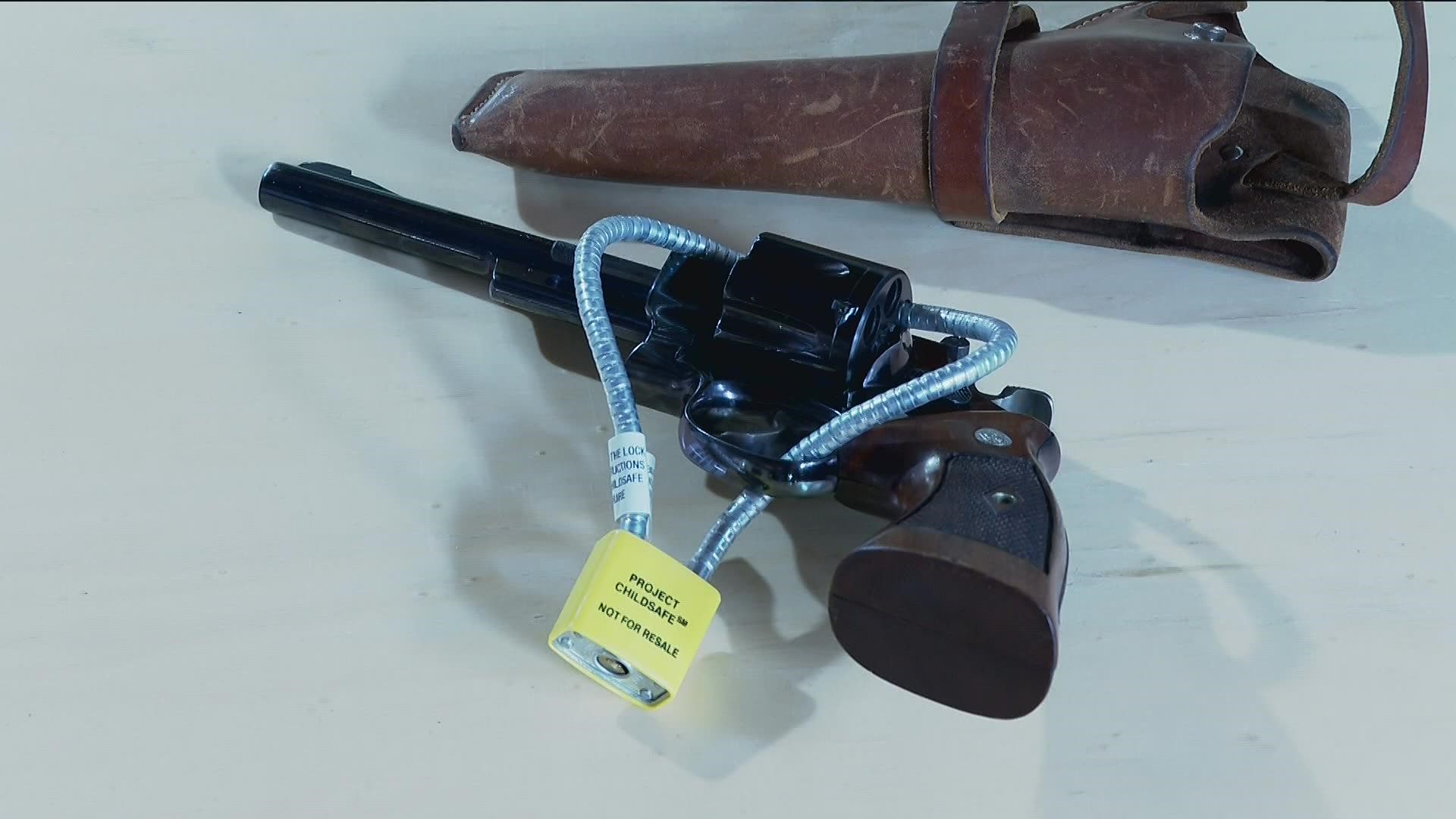ATLANTA — Gun violence is the leading cause of death for kids and teens in the United States surpassing car accidents, drug overdoses and cancer, according to a New England Journal of Medicine study.
For the team at Children's Healthcare of Atlanta, losing a child to gun violence hits home. A growing number of doctors who treat young victims are now bringing awareness to gun safety in hopes to curb the epidemic.
"It's devastating for the family. It's devastating for the community, devastating for the students in the school who attend school with this child," Dr. Kiesha Fraser Doh, a pediatric emergency doctor at Children's Healthcare of Atlanta, said.
When a child is injured or killed by a gun, the loss ripples through the community. Last year, 1,672 children and teenagers under 17 were killed by gun violence, according to the nonprofit Gun Violence Archive.
"First of all, it's sadness that there's another child who's been shot by gun, and then discouragement at times because it feels like we're moving in the wrong direction," she said.
According to the American Academy of Pediatrics, the pandemic also increased the risk of firearm injuries for kids and teens. A study by the group showed that total pediatric hospital visits dropped in 2020, yet the number of kids treated for injuries from gun violence increased by nearly 39%.
"At Children's Healthcare of Atlanta, homicide or interpersonal violence is the number one cause. Number two is actually unintentional. We have a really high rate of unintentional firearm injuries, which is why we are specifically focused on trying to prevent that," Dr. Fraser Doh said.
For example, if a parent is a gun owner, experts said an empty weapon should be locked up, with the ammunition stored separately. If a child is going to a friend's house, doctors encourage parents to talk to each other about whether they own a gun.
Doctors said safety tips can have an impact and help curb all types of gun violence.
"It is 100% preventable. There's lots of things in my job I can't prevent. I can't prevent the child who gets cancer. I can't prevent the child who gets diabetes, but this is something that is preventable," Dr. Fraser Doh added.
Children's Healthcare of Atlanta's Strong4Life recommends the following safe storage guidelines:
- Unload the firearm. Never keep a loaded gun in the house (or car).
- Lock the firearm. Local doctors suggest using a lockbox or gun safe. Parents can use trigger and/or cable locks as additional safety measures.
- Add layers of protection. Teens can be impulsive, acting without thinking about consequences and engaging in risk-taking behaviors, so it’s important to add layers of security:
- Store ammunition locked in a separate location from firearms.
- Try to use personalized lockboxes or combinations rather than keypad lockboxes.
- Store lockboxes and safes out of reach and sight.
- Keep keys away from kids and teens.
- Never assume hiding a gun is enough. Kids young and old are curious and resourceful.
Tips for talking to friends and family about guns include:
- Make it routine to ask about any safety-related concerns before dropping a child off at another person’s home. If it is made a habit, children will feel more comfortable asking.
- Try to ask before making plans. This way, a parent can make an informed decision about where their child spends time. If they're not comfortable, they can always invite the other child to their house instead.
- Lead with information about family. If a parent leads with statements about their home, the conversation may feel less personal. For example, experts recommend a parent say something like “My child isn’t a confident swimmer. Will you let me know if you’ll be around water? We also don’t keep firearms in the home. Do you?”
- Be clear and direct. Rather than make assumptions about someone’s home, ask clear and direct questions to be fully aware of the situation. Keep in mind, this isn’t a personal attack or a debate about someone’s beliefs or rights.

